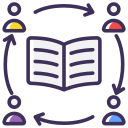Revolutionizing Education: AI-Powered Personalized Learning Tracks in English
Artificial Intelligence is driving a profound transformation in educational experiences worldwide, particularly through personalized learning tracks delivered in English. By leveraging advanced algorithms and data-driven insights, AI is enabling educators and learners to tailor educational journeys to individual strengths, needs, and aspirations. This revolutionary approach promises not just improved academic outcomes, but also fosters greater engagement, motivation, and long-term success for diverse learners across the globe.
The Rise of AI in Education
Data-Driven Personalization
Harnessing vast datasets, AI identifies patterns in students’ performance—recognizing not only what they learn, but how they learn best. This intricate data analysis enables platforms to adapt content delivery, adjust difficulty, and recommend supplementary resources tailored to each learner. As a result, students receive support where needed most, reducing frustration and advancing at their optimal pace. Such deep personalization fosters a sense of ownership over education, empowering learners to pursue their goals with confidence.
Adaptive Feedback and Assessment
Traditional testing methods provide limited insight, often failing to address individual strengths and weaknesses. AI-driven systems, however, offer dynamic feedback and real-time assessments that evolve with the learner’s progress. Rather than waiting days or weeks for results, students instantly understand where they excel and where extra guidance is needed. This immediate, constructive feedback not only sharpens understanding but also helps educators refine their instruction, creating a harmonious cycle of improvement.
Bridging Language Barriers
AI-powered personalized learning tracks in English are instrumental in breaking linguistic boundaries, enabling access to world-class educational content regardless of a student’s native language. Advanced language models assist in translation, grammar correction, and contextual comprehension, making English-medium instruction more inclusive. This opens up international opportunities for learners and prepares them to participate in an increasingly interconnected, global society.
Enhanced Engagement and Motivation
One of the most striking impacts of personalized learning is a dramatic boost in student engagement. When content is curated to align with each learner’s interests, strengths, and pace, lessons become more captivating and meaningful. AI analyses students’ responses and interest levels, adjusting materials and methods to keep them challenged but not overwhelmed. Over time, this tailored approach transforms passive learners into active participants, fostering intrinsic motivation that sustains lifelong learning.
Improved Learning Outcomes
AI-powered personalization enables learners to receive instruction precisely at their level of understanding, minimizing the risk of falling behind or feeling unchallenged. This nuanced support means that gaps in foundational skills are addressed as soon as they appear, while advanced learners are given opportunities to deepen their knowledge. Statistical evidence suggests that students following personalized tracks routinely outperform peers in traditional settings, underscoring the transformative potential of this approach.
Challenges and Ethical Considerations
AI systems, despite their sophistication, can inadvertently perpetuate biases present in the data they learn from. To ensure equitable learning opportunities, it’s essential to design algorithms that are rigorously tested for fairness and inclusivity. Developers must engage with diverse communities, regularly audit systems for discriminatory outcomes, and commit to ongoing improvement. Only through vigilance and transparency can AI fulfill its promise as a force for educational equity.

